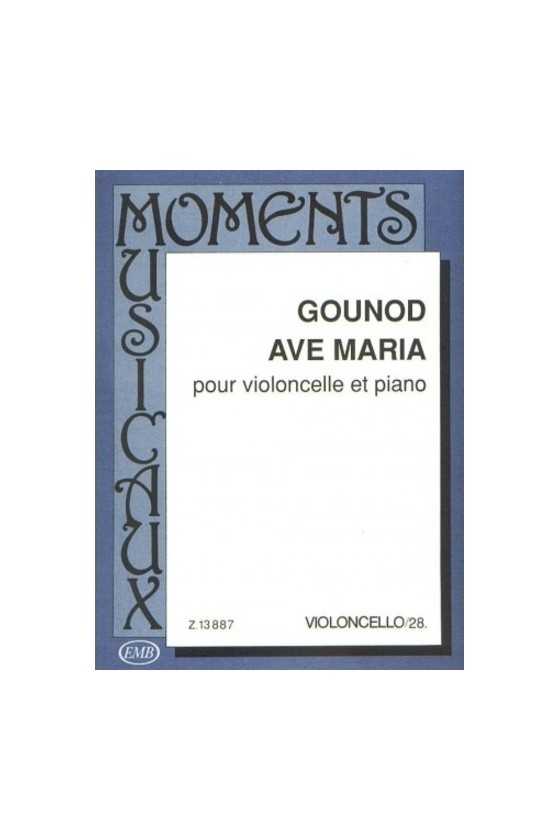Gounod, Charles François
Step into the world of Charles François Gounod (17 June 1818 — 18 October 1893), a French composer who revolutionized the world of opera with his enchanting melodies and romantic compositions. From his early years as a prodigious child musician to his rise as one of the most celebrated composers of his time, Gounod's life story is as captivating as his music. In this journey through the evolution of romantic opera, we will delve into the masterpieces that established him as a musical genius and explore the themes that inspired his work.
Early Life and Musical Training
Charles Gounod was born in Paris in 1818, the youngest of fourteen children. His father, a painter, was a devout Catholic and instilled a love of music in his children. At the age of four, Charles began to play the piano and showed a remarkable talent for music. His father encouraged his musical studies, and by the age of ten, Charles was composing his own works. He later studied at the Paris Conservatoire, where he won several prizes and studied under the renowned composer Fromental Halévy.
Gounod's early compositions were influenced by the works of Bach and Palestrina, and he became known for his sacred music. He composed several masses, motets, and hymns, including his famous "Stabat Mater." However, he soon turned his attention to opera, where he found his true calling.
Gounod's contributions to the Romantic Opera Movement
Gounod was a key figure in the Romantic opera movement, which emerged in the mid-19th century as a reaction against the rigid rules of Classical opera. Romantic opera emphasized strong emotions, vivid storytelling, and lush orchestrations, and Gounod's music embodied these qualities. He combined the traditions of French opera with the new Romantic style to create a unique sound that captivated audiences.
Gounod's operas were characterized by their lyrical melodies, rich harmonies, and virtuosic vocal writing. He was a master of orchestration, using the full range of the orchestra to create a rich and varied sound. His music was also notable for its use of leitmotifs, or recurring musical themes, which helped to unify the opera and reinforce its themes.
Famous Works by Gounod - Romeo et Juliette, Faust, and Mireille
Gounod's most famous opera is "Faust," which premiered in 1859 and is based on the classic German legend of a man who sells his soul to the devil. The opera was an instant success and is still performed regularly today. It features some of Gounod's most memorable music, including the famous "Jewel Song" and the stirring finale.
Another of Gounod's most famous works is "Romeo et Juliette," which premiered in 1867 and is based on Shakespeare's tragic play. The opera is notable for its lush, romantic score, which captures the passion and drama of the story. It features some of Gounod's most beautiful music, including the soaring love duet and the haunting "Poison Aria."
Gounod's "Mireille," which premiered in 1864, is a lesser-known work but is still admired for its lyrical score and vivid depiction of the French countryside. The opera tells the story of a young woman who must choose between her love for a shepherd and her duty to her family. It features some of Gounod's most charming music, including the lilting "Si les filles d'Arles" and the joyful "Farandole."
Gounod's Unique Musical Style
Gounod's music is characterized by its lyrical beauty, emotional depth, and technical mastery. He was a master of melody, and his operas are filled with soaring arias and duets that capture the passion and intensity of the characters. He also had a gift for harmony, using complex chord progressions to create a rich and varied sound.
Gounod was also a master of orchestration, using the full range of the orchestra to create a varied and expressive sound. He was particularly skilled at using the woodwinds and brass to create colorful effects. His use of leitmotifs, or recurring musical themes, also helped to unify the opera and reinforce its themes.
Conclusion
Charles François Gounod was a true musical genius whose music continues to captivate audiences today. His contributions to the Romantic opera movement helped to revolutionize the genre, and his operas remain among the most beloved in the repertoire. His unique blend of French opera traditions and Romantic style created a sound that was both innovative and timeless.
Gounod's music is notable for its beauty, emotional depth, and technical mastery. His operas are filled with memorable melodies and lush orchestrations, and his use of leitmotifs helps to unify the opera and reinforce its themes. Gounod's enduring legacy is a testament to his talent and his contribution to the world of opera.


